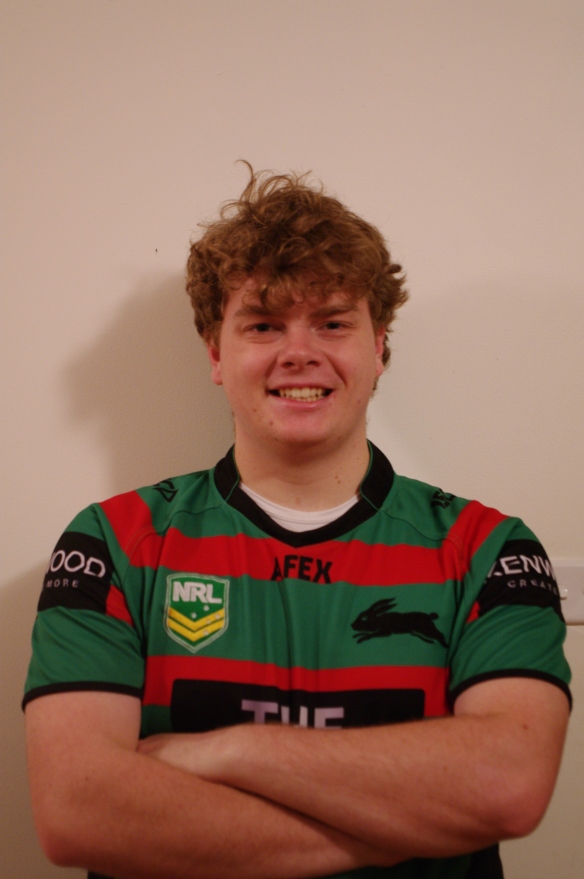
“It’s more than just a team,” he says, “South Sydney are an integral part of me as a person.” Harrison, has a passion that surpasses all he knows; it is his identity.
Harrison Worley has been a fan of the South Sydney Rabbitohs since before he knew what football was. “My father was a huge Souths fan, and from the moment he first held me as a newborn, I was a South Sydney fan!” he says enthusiastically. He still remembers going to see them play in 1999 against the Tigers at the Sydney Football Stadium; he believes this was his earliest football memory.
“As a sport, Rugby League is fast, skilful and tactically engaging. It’s a sport which caters for people…” he tells me, “…it represents the diversity of the area I’m from – Western Sydney; the game’s heartland.” Harrison has spent his whole life growing up in South Western Sydney, and it has certainly made an impression on his values as a now adult. He is soon to turn 19, and he is still as energetic and passionate for the Souths as he was 10 years ago.
Harry pays for membership every year, and receives a ticket to games that the Souths play in, however this year he’s only been to two matches, “…such is the complexity of balancing everything when at university!” he bursts in a sort of half laugh, half cry.
In his heart, he truly believes that the Souths are more than just a team. His image of them is actually quite colourful and well thought out, “Our club is a tapestry, made up of a mix of different socio economic levels, geographies, cultures-“ he pauses to collect his statement “…Souths represent diversity and wearing that jersey outside of the game allows me to demonstrate those values which are integral to our club.”
He smiles with his eyes when he says “There is also a huge factor of pride. I’m so proud to be a member of this football club. I love the people, the history – I just love this club.” Lightly feeling the material of his jersey, he explains “Wearing this jersey makes me so happy, and it allows me to remind myself of the extremely special club I am a part of. I am proud of South Sydney, and I want to demonstrate that – always.”
It’s not about the actual competitive sport that makes Harrison who he is. It’s what the football universe means to him on the inside. Everybody has something that is as significant to them as the need to breathe. We all have an expressive side in us, something that we want to belong to and want to. “The club is a part of my identity, and easily one of my greatest passions. If Souths were to fall out of my life, there would exist a considerable gap, which would not be able to be filled easily” he sums up. Harrison’s love for his game and his team, are what we as humans strive to look for in our lives.


